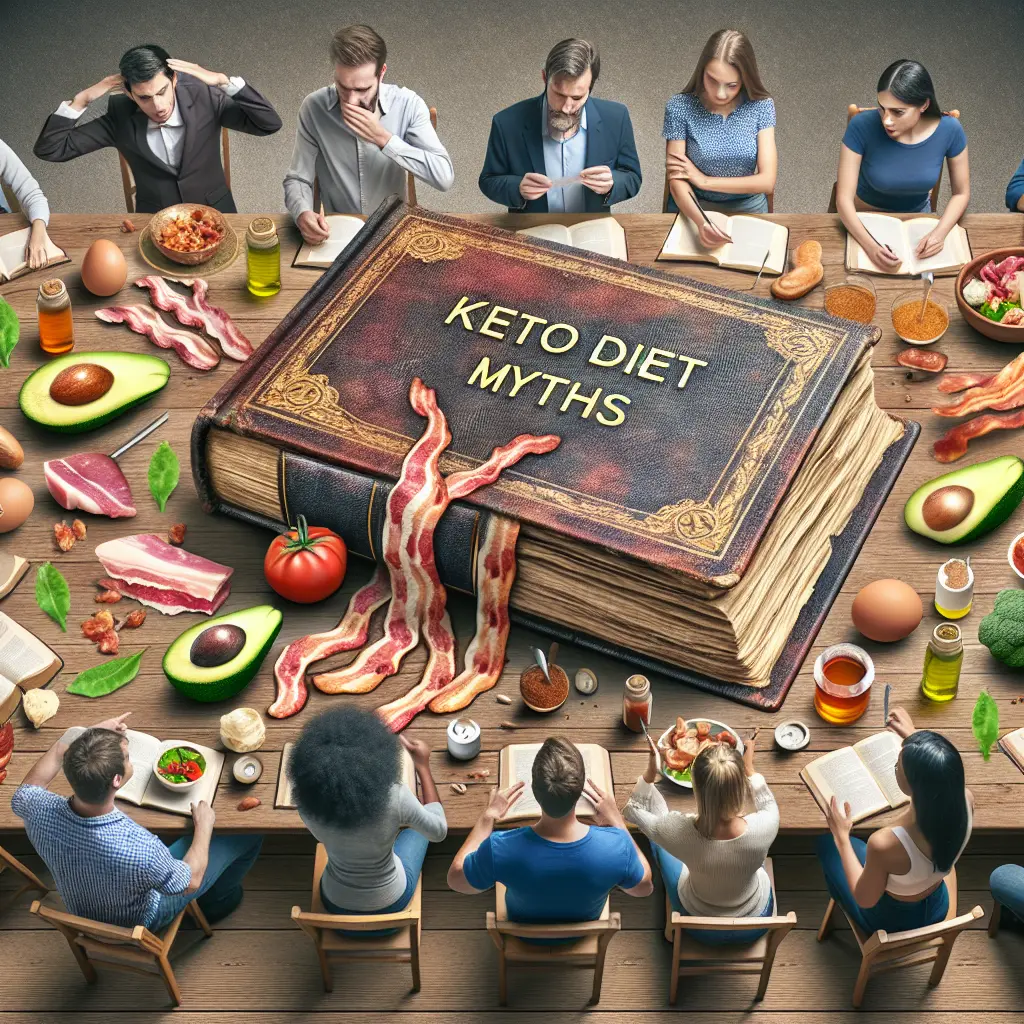
Debunking Keto Diet Myths: A Comprehensive Analysis
In recent years, the ketogenic diet has surged in popularity, capturing the attention of health enthusiasts and professionals alike. Despite its acclaim, the keto diet is not without controversy. Misconceptions abound, leading to a mix of myths and misunderstandings that can cloud the truth. For those interested in embracing this lifestyle, distinguishing facts from myths can be challenging.
Understanding the reality of the keto diet requires unraveling these false beliefs and engaging in serious myth-busting. With many conflicting narratives—from claims of restrictive dangers to assertions of miraculous weight loss—it's crucial to conduct a reality check. What is the truth behind the alleged benefits and drawbacks of the keto diet? How can one separate myths from the facts?
This introduction aims to pave the way for a detailed exploration of keto diet myths versus reality. By clarifying prevalent misconceptions and offering a balanced view, we hope to provide readers with a nuanced understanding of what the keto lifestyle truly entails. As we dive into debunking these myths, we will challenge stereotypes and falsehoods, offering evidence-based insights into what makes the keto diet both promising and sometimes misunderstood.
Myth 1: The Keto Diet and Artificial Sweeteners
Myth: Artificial sweeteners are harmless and can be consumed freely on a keto diet.
Reality Check: Recent research highlights growing concerns about the impact of artificial sweeteners on heart health. A study published in the American Journal of Clinical Nutrition indicates that excessive consumption may be linked to cardiovascular diseases. While these sweeteners can aid in maintaining low carbohydrate intake, they should be used in moderation. The myth that they are entirely safe is one that needs debunking, as there are potential health risks if consumed excessively.
Myth 2: The Meat-Only Approach
Myth: A meat-only diet under the keto regime provides boundless energy and rapid weight loss.
Reality Check: Anecdotal evidence, such as individuals reporting increased energy and weight loss on a meat-only diet, can be compelling. However, experts caution against a restrictive meat-only diet due to potential nutritional deficiencies. While protein is a staple in keto diets, balance is key. A well-rounded approach incorporating vegetables and healthy fats is essential to avoid missing out on critical nutrients like fiber and vitamins.
Myth 3: Keto Diet Equals Gluten-Free
Myth: Following a keto diet automatically means you are gluten-free.
Reality Check: The gluten-free aspect of a keto diet is often misunderstood. While many keto-friendly foods do not contain gluten, the diets are not synonymous. Gluten-free does not always equate to low-carb, and vice versa. People with celiac disease or gluten sensitivity must scrutinize ingredient labels, as some keto products might include gluten-based additives.
Myth 4: Fats and Cholesterol Concerns
Myth: The high-fat content in the keto diet invariably leads to increased cholesterol levels.
Reality Check: Concerns about cholesterol levels on a keto diet are widespread. A recent study highlighted by The Indian Express found that while some individuals may experience an increase in cholesterol, others see no change or even improvements in their lipid profiles. This variation is often due to genetic factors and individual metabolic responses. Emphasizing unsaturated fats from sources like avocados, nuts, and olive oil can mitigate potential negative effects.
Myth 5: Keto as a Cancer Treatment
Myth: The ketogenic diet is a proven treatment for cancer, specifically pancreatic cancer.
Reality Check: There is ongoing research into the potential therapeutic effects of the keto diet for certain cancers. A study suggested that combining a ketogenic diet with new medications could offer promising results for pancreatic cancer treatment. However, these findings are preliminary and should not be misconstrued as definitive evidence or a standalone treatment strategy.
Myth 6: Low-Carb vs. Low-Fat Diets
Myth: A low-carb diet is unequivocally superior to a low-fat diet for weight loss and overall health.
Reality Check: The debate between low-carb and low-fat diets continues to be contentious among experts. According to a panel of nutritionists reported by Healthline, both diets have their merits depending on individual health goals and metabolic responses. Some people may find better success with one approach over the other based on personal factors such as genetics and lifestyle.
Conclusion
Navigating the world of keto diet myths requires careful consideration of both scientific evidence and personal experience. As we've explored, the truth behind common myths is often more complex than popular narratives suggest. By addressing these misconceptions with evidence-based insights, we aim to provide a clearer understanding of what the keto lifestyle truly entails.
Whether you're an experienced follower or new to this dietary approach, ongoing education and critical thinking are essential tools for discerning facts from myths. For those embarking on or continuing their keto journey, staying informed and critically evaluating new information is vital. Engage with reputable sources, consult healthcare professionals when necessary, and remember that a flexible approach tailored to your unique needs often leads to the best outcomes.
Thank you for joining this exploration of keto diet myths. Your health journey is yours to shape—make it a well-informed one.
Anna Westbrook